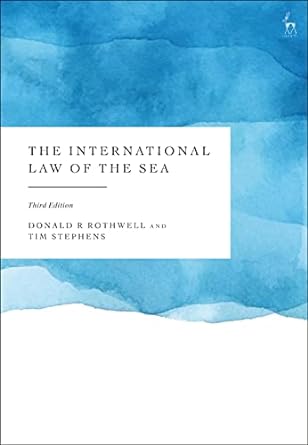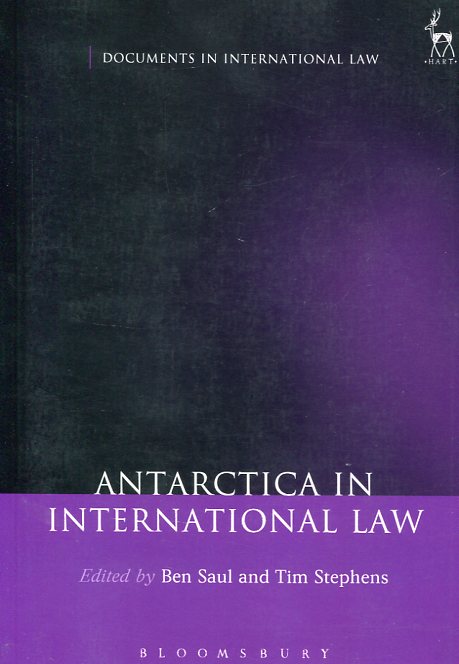The international law of the sea
- ISBN: 9781509958382
- Editorial: Hart Publishing
- Fecha de la edición: 2024
- Lugar de la edición: Oxford. Reino Unido
- Edición número: 3r ed.
- Encuadernación: Rústica
- Medidas: 24 cm
- Nº Pág.: 720
- Idiomas: Inglés

Praise for the previous edition: "A complete overview of the subject which does not intimidate the reader but rather spurns interest and understanding in the subject." European Energy and Environmental Law Review "…(the book is) scholarly yet accessible and very readable; thoroughly recommended." Law Institute Journal Description The law of the sea provides for the regulation, management and governance of the ocean spaces that cover over two-thirds of the Earth's surface. This book provides a comprehensive assessment of the foundational principles of the law of the sea, a critical overview of the 1982 United Nations Convention on the Law of the Sea and an analysis of subsequent developments including many bilateral, regional, and global agreements that supplement the Convention. The third edition of this acclaimed text has been thoroughly revised and updated, and now incorporates a dedicated chapter on natural and artificial islands. All of the main areas of the law of the sea are addressed including the foundations and sources of the law, the nature and extent of the maritime zones, the delimitation of overlapping maritime boundaries, the place of archipelagic and other special states in the law of the sea, navigational rights and freedoms, military activities at sea, marine scientific research, and marine resource and conservation issues such as fisheries, marine environmental protection and dispute settlement. The book also takes stock of contemporary oceans governance issues not adequately addressed by the Convention. Overarching challenges facing the law of the sea are considered, including how new maritime security initiatives can be reconciled with traditional navigational rights and freedoms, the need for stronger legal and policy responses to protect the global ocean environment from climate change and ocean acidification, and work on a new agreement for the conservation and sustainable use of marine biological diversity in areas beyond national jurisdiction.
The history and sources of the international law of the sea
Coastal waters
Territorial sea and contiguous zone
The exclusive economic zone
The continental shelf
The deep seabed
High seas
Islands
Archipelagic states
Landlocked and geographically disadvantaged states
Navigational rights and freedoms
International straits and archipelagic navigation
Military uses of the oceans
Marine resource management
Marine scientific research
Marine environmental protection
Delimitation of maritime boundaries
Maritime regulation and enforcement
Dispute settlement in the law of the sea
Oceans governance







